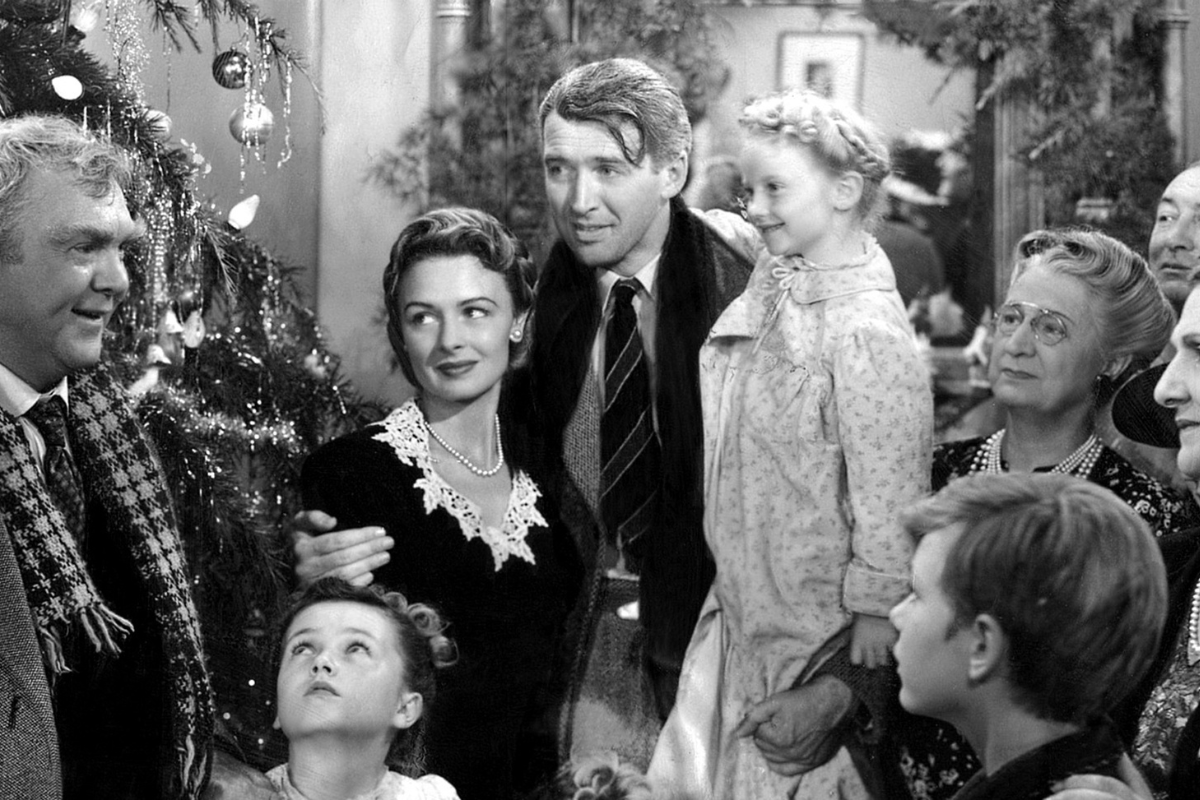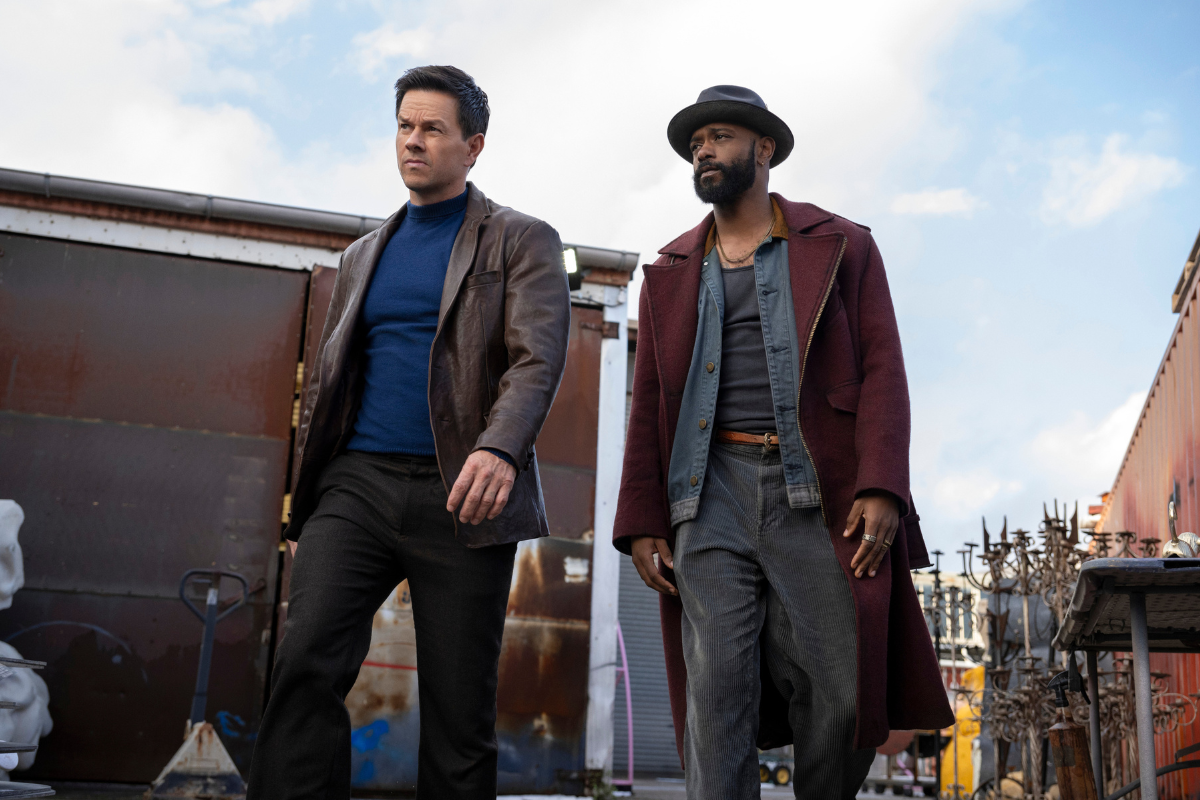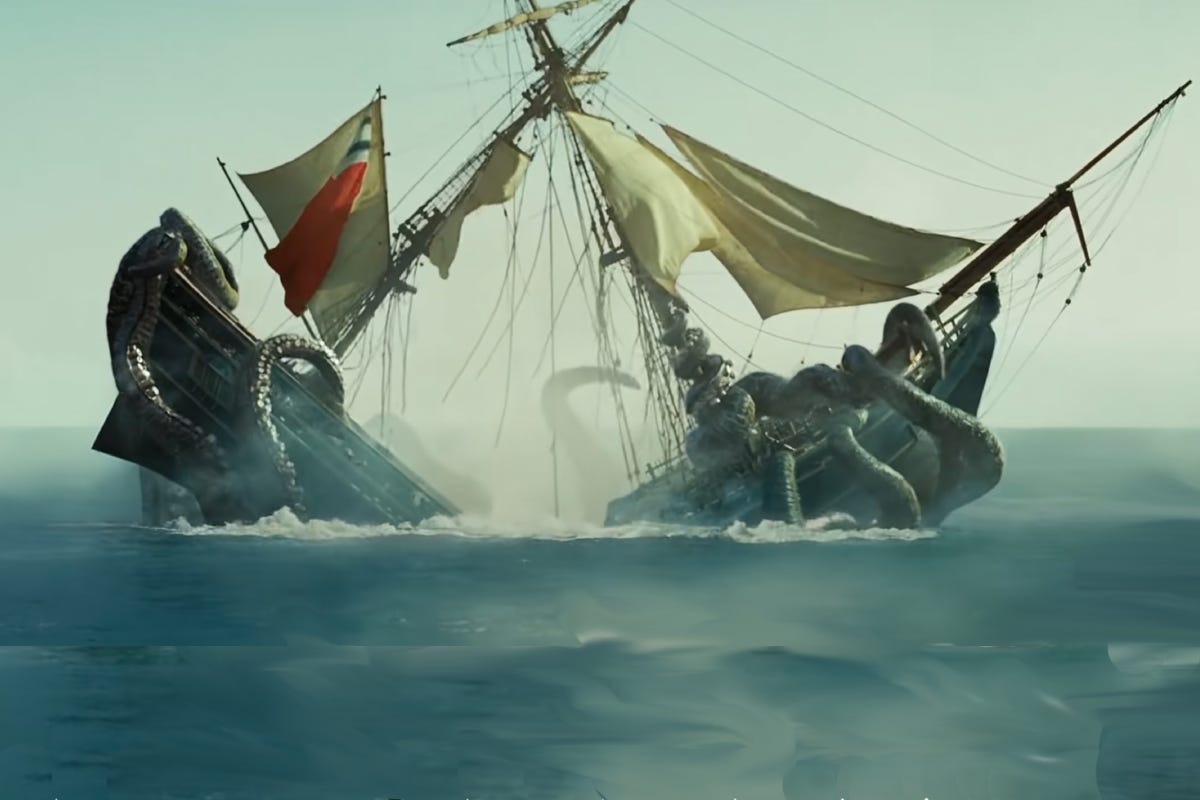Breaking & Entering: Shane Black on Writing and How to Keep Going When the Going Gets Brutal
A-Lister Shane Black on why screenwriting is so f*@king hard, how he started, the one must-read book, and conquering your worst fears to keep hitting the keys.
I interviewed Shane Black for my column last month on his latest directorial venture, Play Dirty, an action-packed heist starring Mark Wahlberg, LaKeith Stanfield, and Rosa Salazar, which he co-wrote with Charles Mondry & Anthony Bagarozzi. Inspired by the "Parker" book series by Donald E. Westlake, writing under the pen name Richard Stark, Play Dirty showcases Black’s trademark banter and noir sensibility, and relentlessly escalating character-driven plot twists.
We had such a good time chatting, and Shane was so forthcoming about his process, I realized there was enough material for two columns – one about the film – which you can catch on Prime Video – and one about the craft, including the agony and the ecstasy.
This interview has been edited for length and clarity.
Barri Evins: I imagine it must feel odd to have your name used as an adjective, but you’ve been very open about how you developed your distinctive voice:
My style, such as it is, that sometime people comment on, is really cribbed from two sources. One is William Goldman, who has a kind of chummy, folksy, storytelling style. It's almost as though a guy in a bar is talking to you from his bar stool. And then Walter Hill, who is just completely terse and sparing and has this real spartan prose that's just punchy and has this wonderful effect of just gut-punching you. I took those two and I slammed them together, and that's what I use. People say it's interesting. Mostly it's a rip-off. It's Goldman meets Walter Hill.
Shane Black: In the beginning, that's what inspired me. Before I wrote a screenplay, I had read four curated scripts. They were just four good ones. Then I said, "I think I get it. I think I have an angle of attack, and from there it can change.” But those were the people I cut my teeth on. William Goldman was one of my mentors. His first book, Adventures in the Screen Trade, is a book that every screenwriter needs. It doesn't just tell you about some tricks. It doesn't tell you how to write. It gives you a lot of tools. He says, “Here's why we like to write. Here's what's important.” He gets you excited about writing and reminds you of why you started doing it in the first place. Finishing that book makes you want to go off and write immediately – that's a tool that other screenwriting books don’t provide.
Barri: What other writers do you admire?
Shane: I just finished Dept. Q, based on the series of books by Jussi Adler-Olsen, sort of Danish Noir. The books are great, but what Scott Frank did with that, and with The Queen's Gambit – he's remarkable. He's a technician. I don't know a lot of the younger writers today, but nowadays people in my group, like the work that Ed Solomon is doing with Steven Soderbergh, is really, really interesting.
Barri: Ed came to speak at my Screenwriting Elevated seminar series during COVID, as did you. Since everyone was in lockdown, the asks were like shooting proverbial fish in a barrel. The unforeseen downside? I couldn't get them to end the Zoom. “Did anyone else have a question? Anyone?” They were either craving human interaction or avoiding writing.
Shane: When you speak at these things, the reason it's so great is you end up blurting out stuff that you didn't know you knew. "Oh, by trying to explain something to this person, I just explained it to myself!" It's really about trying to anticipate if you were in their shoes, brand new, fresh and wide-eyed, what are the questions you would ask? Sadly, what the students usually want to know is, “How the hell do I get an agent?"
Barri: How did you get started writing?
Shane: I decided to take a few days off from my temp job to see if I could start a screenplay. I went home, and in the garage at my mom's house I had a little folding table. I sat down and I wrote a scene, about seven or eight pages. My older brother asks to read it, and he didn't like it. Partly because it was kind of rough. It was kind of horrific, and he's not a big horror guy. And he said, "This is just sort of unpleasant." I was devastated. My brother was a writer of paperback originals. I thought, “What am I going to do? I give up.”
But instead, I sat in front of this little old manual typewriter. I put the paper in and I thought, “My brother hates it, and he's right. I'm a loser. I can't do this." And I remember I had a finger poised above the keyboard – I’m a two-finger typist – I thought “What am I doing? This isn’t going to work.” And I thought, “Oh, f*@k, just do it, man!” And I hit the letter T. T-H-E. “The afternoon glancing sunlight through palm fronds… foliage reveals…” No. “In a shaft of light, soldiers sitting by a creek…” “Oh, God, this is this isn't going anywhere!” And the soldier says this. “Oh, great dialogue, guy!” I’m hating myself, just negative self-talk. I’m typing and typing, and I'm saying, “I'm a loser, I can't do it. I'm so afraid, I'm so afraid, I'm so afraid. Why am I even typing? OK well, wait a minute. This character might say that. That’s terrible, but what if he said this? That would make it work.”
Without even knowing it, I was distracted by something that caught my interest in the story or in the dialogue. I had to just keep working in a state of fear, absolute anxiety, until briefly, something in the moment became slightly more interesting to my brain than my own fear. Then it became problem solving.
You just work with terror until terror somehow picks at something and says, “Oh, problem to be solved!” Because you can't have terror and curiosity in your head at the same time. So, I had a finger poised over the letter T. But because in spite of all that fear, I hit T and kept typing, I got to a point where something caught my interest. And if I had not done that – I'm a salesman.
Even while I’m writing, I'm still thinking I'm a loser. And then, wait – “I'm actually writing!” Even as I'm hating myself, I just did it! So, I guess I'm not a loser! Until the next page, where you're a loser again.
You're trying to extinguish the negative voice in your head when you're writing, and suddenly you find something that makes you curious or excited or intrigued or even, “Hey, there's a joke here if I change this word!” That's remarkable. That's the miracle. That's the only thing.
Eventually, the point at which you decide you're not a loser is when, after all that negative self-talk, after all that kicking yourself, and absolute slave labor where your brain is the taskmaster, telling you you're no good – someone says, "Hey, let's change this scene." And you go, "No, no, no, that works, that's good." And you realize, "Oh, I believe in it as well." It's this process of becoming attached to and confident in something that has evolved despite your self-doubt.
Barri: One thing some aspiring writers learning how to write a screenplay don't realize is that writing is f*@king hard, and that it doesn’t become not hard. You're very open about the struggle. Do you have any tips or things that you do that makes getting at it and getting back at it easier?
Shane: The most important thing is to realize you're not alone. I have sold screenplays, and I have made films, and yet it doesn't become easier. In fact, it becomes more difficult. With each successive outing, to me there's fewer things to tackle, bigger expectations. If you get a job and they pay you, you have to forget you're being paid, because if you start to worry, “Oh my God, they're paying me and I can't do it,” then that's a factor.
At first, you're going to feel fear: “I've written my last funny line. I don't even know how this one was a success. It was probably was a fluke. Maybe I've lost it.” Imposter syndrome thoughts inevitably intrude. What you have is unrelenting fear and anxiety. Try to focus on staying on top of whatever game you have by remembering to touch bottom and say, “OK, why did I start this? Why is this important to me?”
Barri: Do you think that your experience as an actor helped you when you went to direct?
Shane: I didn’t study film acting, I studied theatre.
Barri: Me too, and then realized I didn't want to act because I didn't want to wait to be chosen; I wanted to choose the stories. And then I thought, “Well, if I'm going to pick a story I really want to tell, I want a lot of people to hear it.” Then I realized, I can't be stuck within a proscenium. I want to have a bigger scope and be anywhere.
Shane: I totally agree that's the reason one tends to become a film writer. I think there's something about the sense of power and tradition and almost sacred craft that has to do with theatre. Film, there's practicality to it. Yes, it's sacred, but there's a lot of work going on with people carrying cables. The stage is the theatre, that's the church. You go in there, you're getting a divorce, or your parents are sick, or you're in debt, or you lost your girlfriend – it doesn't matter. Those problems go away when you walk in that door; you leave that part outside. This is a church, this is to work, this is to rehearse, this is to discover something.
I was also taught something which movies seem to have lost. My theater professor, Michael Gordon, a wonderful director, said there were two translations of the word “rehearsal.” The first one is French, and it's “répétition,” repetition. You do it again and again and again. Then there was the one he preferred, from the Latin, “proba,” to probe, to explore, to poke, and hash out. And that's what we don't have so much in movies these days. The actor will often show up the day before filming.
Barri: It seemed as if there was always a couple of weeks of rehearsal where people sat around the table, read the script, tried things out, got up, and moved around. They explored the story and characters.
Shane: To me, that was most codified in the work of Sidney Lumet, who famously would tape out a warehouse floor, maybe put in some minor furniture, and work on it for a week before cameras even rolled. That did sort of go away. Now you're lucky if you can talk about it with your actors, get on the same page. On the day, before they go to makeup, they report to set. I usually take about 20 minutes to block through and try to figure out, “What's the impulse here?” And I’ve got someone in my ear saying, "You're taking too long! You're wasting time!" My feeling is what we're doing now is going to save us time.
Barri: I love those two definitions.
Shane: Because of no rehearsal time, I'm in the habit of choking people with paper. I write little mission statements, memos, thoughts and ideas, and email them to the actors. "Hey, here's a hypothetical conversation between these two characters I was writing last night.” It's not a substitute for rehearsal, but it's about trying to say, “Do we have a common mission statement? Do you see what I'm trying to do? And if you can expand on that, great.” You do that as much as you can once the actor is cast and before you get to the set, so you're thinking along similar lines.
Barri: What piece of advice would you give about what a writer truly needs to know about their story before they begin?
Shane: Sydney Pollack said, “You’ve just got to find the spine.” Which is a clever way of saying, “What is it about? Why are we making this film? Is it about something bigger?” Sydney was having a tough time figuring out how to make Tootsie more than just a silly comedy. The day it clicked for him was when he imagined a sentence, which he then applied as the spine. “I had to dress up as a woman in order to learn how to be a better man.” And once he had that mission statement, it served as the armature, which he could then hang all the other elements of plot and character. But figuring out, “What's this story about?” is these days, often sadly neglected.
If you go to see The Conjuring movies, there's things that seem like a lot of other horror pictures, but there's also this wonderful bond between this husband and wife that speaks to an attitude towards fear. It speaks to responsibility and curiosity, and facing things with a calm acceptance and a clear-eyed view that the average person loses in the hysteria of pure fright. They become heroes because they're unlikely people, but they're just normal people.
The reason I love The Exorcist is that for me the subtext is about people who shouldn't have been chosen to face off and determine the outcome of “us versus primordial evil.” These people, an actress, a priest who has lost his faith, another priest who's basically dying and trembling the whole movie, a cop who's cynical and world weary. These are not the typical heroes you would choose to take on eternal, ancient evil, but they have to. They've been anointed – somehow despite themselves – to step up and fill mythic shoes that they're not seemingly fit to wear. And they have to find a way to step up and fill those shoes. That makes it about something beyond just a scary movie.
Barri: When I’m working with a writer, theme is where it has to start for me. If you’re doing construction, you have to have a blueprint, you have to figure out where the doors are, and where you want a window, and where you’re going to plug stuff in – that’s the outline, but you have to dig down to lay the foundation before you build up – that’s the theme.
Shane: Even if you're painting your living room, you're gonna put on a coat of primer, and then you're going to add some sealant, and then you're gonna put on first coat of paint and that’s patchy, then you're going to go over with a second coat.
In screenwriting, it takes a bunch of passes to solidify and time for it to become permanent. We used to have a percolator, a coffee maker that heated the water and then pushed it through the grounds again and again – making a bloop, bloop, bloop sound. Now, you can stop halfway through and pour the coffee, and it's going to be thin. It hasn't percolated fully. A lot of people are pouring the coffee two minutes after they started. But if you remember those old percolators, you waited until it was percolated – until bloop, bloop, bloop – and only when it was done, there's thick, rich coffee. And now you pour it. That's what a lot of writers forget it to do, to let the coffee perk before they spit it out.
Barri: That's a great quote, Shane. I'm just going to have to figure out how to spell “bloop, bloop.” But that's my problem, not yours.
Play Dirty is streaming exclusively on Prime Video.
Barri Evins draws on decades of industry experience to give writers practical advice on elevating their craft and advancing their career. Her next SCREENWRITING ELEVATED online seminar with 7 monthly sessions plus mentorship will be announced in 2025. Breaking & Entering is peppered with real life anecdotes – good, bad, and hilarious – as stories are the greatest teacher. A working film producer and longtime industry executive, culminating in President of Production for Debra Hill, Barri developed, packaged, and sold projects to Warners, Universal, Disney, Nickelodeon, New Line, and HBO. Known for her keen eye for up and coming talent and spotting engaging ideas that became successful stories, Barri also worked extensively with A-List writers and directors. As a writer, she co-wrote a treatment sold in a preemptive six-figure deal to Warners, and a Fox Family project. As a teacher and consultant, Barri enables writers to achieve their vision for their stories and succeed in getting industry attention through innovative seminars, interactive consultations, and empowering mentorship. Follow her on Facebook or join her newsletter. Explore her Big Ideas website, to find out about consultations and seminars. And check out her blog, which includes the wit and wisdom of her pal, Dr. Paige Turner. See Barri in action on YouTube. Instagram: @bigbigideas X: @bigbigideas







